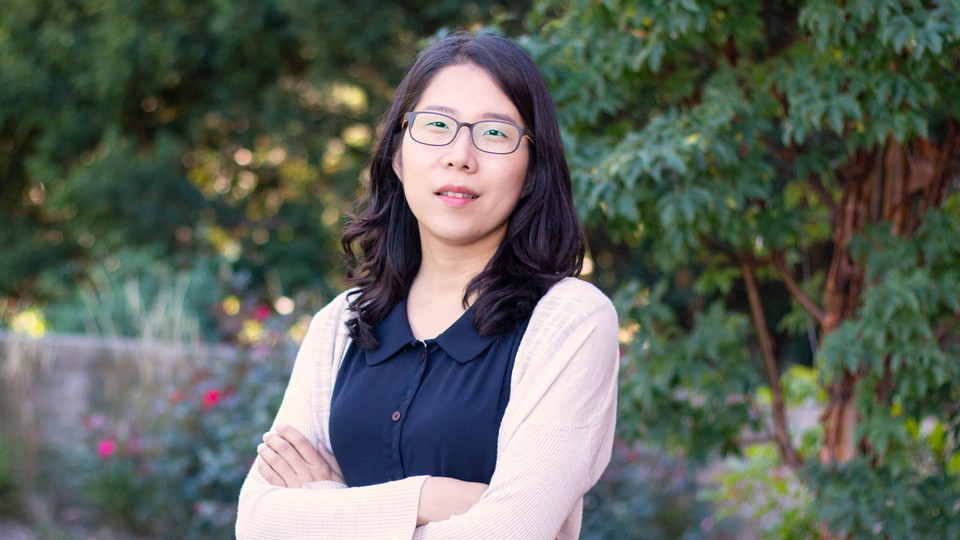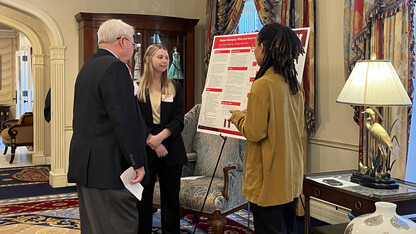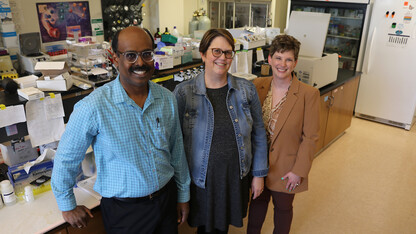· 3 min read
Namkung aids students with arithmetic-to-algebra transition

For students struggling to learn math, confusion and frustration can be common denominators. A new Nebraska research project is aiming to help remove those negative factors from the equation.
According to previous studies, students with math learning difficulties experience the most severe and persistent underachievement in algebra compared to their peers. Jessica Namkung, assistant professor of special education and communication disorders, is exploring ways to help these students prepare for this learning curve.
“Algebra can be very abstract and very confusing for students who are already struggling in foundational math,” Namkung said. “A lot of times, algebra is taught as procedure without building the concept of why you do it.”
Namkung’s research is built around a 10-week process focused on helping students struggling in math understand the basics of algebra. She worked with Lincoln Public Schools math and special education teachers to get their feedback and ensure the process aligned with their curriculum.
The project, which is housed at the Nebraska Center for Research on Children, Youth, Families and Schools, began last October with two Lincoln middle schools implementing the program.
Graduate and undergraduate students work as tutors with about 50 middle school students, half of whom receive the intervention while the other half serve as the control group.
During the process, pairs of students are assigned tutors three days a week for five weeks at increments of 30 minutes each. These sessions focus on building conceptual understanding, learning new math vocabulary and building fluency with manipulating and solving algebraic equations.
Before the intervention, each student is pre-tested, then randomly assigned to either the treatment or control group. After the tutoring process, students are tested again. Namkung expects the treatment group will show significantly higher improvement scores than control group students.
“Algebra is the gatekeeper of college, STEM majors and more advanced technical careers,” said Namkung, a CYFS research affiliate. “But how do we get there without understanding the foundations beyond basic arithmetic, to prepare students for variables, equations, expressions and other elements of algebra? That’s what this research aims to do.”
Namkung was motivated to develop this study after reviewing research conducted during a 20-year span. She found fewer than 15 studies focused on the secondary math domains for students with math learning difficulties.
“Most research in math learning difficulties has exclusively focused on foundational skills at the elementary level,” she said. “It is extremely difficult to find an evidence-based intervention that targets on-grade level standards for secondary students. It intrigued me.”
Namkung is pursuing additional funding to expand her research in the middle and high school levels, as well as determine which factors have the greatest impact on algebra learning for secondary students with math learning difficulties.







